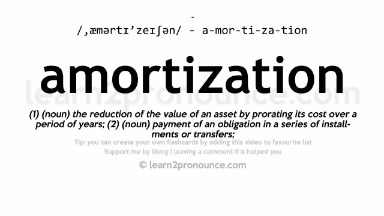
Entering data into spreadsheets and reconciling numbers manually is so old school. Use cloud-based bookkeeping software, and do your business banking online. That way, you can sync your bookkeeping software with your business bank account so you always have accurate, up-to-the-minute records. Plus, with the cloud, your critical financial data is backed up safely off-site. While recording by hand may be the cheapest solution, it can be time-consuming and prone to errors.

Bookkeeping Basics for Small Business Owners: Everything You Need to Start Doing Your Own Bookkeeping
- This can help alleviate some problems you might run into with manual record keeping.
- Think about how much you currently owe, how much customers owe you, when payments need to be made or are expected, and how much VAT you’re liable for.
- From the start, business owners can get personalized answers to questions and spend less time on their books.
- This is particularly true once the business accounts for its operational costs and recurring expenses.
- After you have sold goods or provided a service, you invoice the purchaser.
- Use a receipt book that makes immediate duplicate records so you can write a quick receipt for a customer and keep a record for yourself.
Routinely cross-check receipts and cash flow during your weekly bookkeeping session to keep your cash systems polished and up-to-date. Small Business Trends is an award-winning online publication for small business owners, entrepreneurs and the people who interact with them. Our mission is to bring you “Small business success … delivered daily.” There’s a variety of mobile apps that can help you to remember appointments and such.
Coordinate with a tax specialist
Plus, you can ensure your payroll account has enough money even if the primary account suffers. Set a date early enough each month to give you time to prepare the paperwork. Many business owners aren’t aware of how much it costs to operate their business.
How Do Small Businesses Keep Track of Accounting?
For both sales and purchases, it’s vital to have detailed, complete records of all transactions. You’ll need to note the amount, the date, and any other important details https://www.personal-accounting.org/ to ensure you can accurately summarize your finances when it comes time for tax season. Purchase receipts should always be kept as proof that the purchases took place.

How a Bookkeeper Is Different Than an Accountant
You can look back, see patterns, and even draw comparisons with previous business years. Bookkeeping allows you to have a greater understanding of the areas within your business where you can trim costs. If you’re a busy small business owner with a million things to do, it’s easy to let bookkeeping fall by the wayside. Keeping an accurate, up-to-date set of books is the best way to keep track of tax deductions (expenses that you can deduct from your taxable income). Once the entries are assigned to the correct accounts, you can post them to the general ledger to get a bird’s-eye view of your current cash status.
Customizing for accounting students
At the beginning of the year, take a look at the list of deductible expenses and determine which categories you’re most likely to spend money in. Consider creating a labelled file folder for each of these expense categories. This way, when you make a purchase, you can immediately file the receipt in the applicable expense category, saving you time when you need to make your expense calculations.
Consider whether you want to keep your personal and business bank accounts at the same financial institution. On the other hand, your bank may provide perks for keeping your personal and business accounts with them. If you’re using accounting software, financial reports might be automatically generated.
Making sure your records are well-organized can save you a big headache if you’re ever subjected to an audit. It’s never too early to take ownership of your bookkeeping policies. By following the tips and best practices outlined in https://www.kelleysbookkeeping.com/deferred-expense-definition/ this guide, you’ll be more equipped to set a strong financial foundation for future growth, profitability, and ultimate success. Most small businesses will either do their books themselves or outsource the work to a professional.
Bookkeeping is the process of tracking income and expenses in your business. It lets you know how you’re doing with cash flow and how your business is doing overall. Staying on top of your bookkeeping is important so that you don’t have unexpected realizations about account balances and expenses.
You will want to do your research before pricing your services, and you will also want to maintain some level of flexibility to adjust your rates in the future. Professional associations also offer certifications so that you can hone your skills and market yourself as a professional bookkeeper. For instance, both the American Institute of Professional what if i didn’t receive a 1099 Bookkeepers (AIPB) and the National Association of Certified Public Bookkeepers (NACPB) offer certification programs. The savviest small-business marketers are the ones who figure out exactly who their customers are and advertise directly to them. Many clients will look for your website to find out about you and your experience.
Make sure you file your payroll returns on time and make the payments on time. Filing or paying late can incur fines for your business (a real waste of your business funds). With each pay run, make sure you set aside savings to cover the payroll tax from the employee’s pay.

